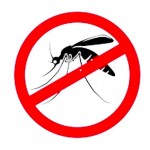 The dengue virus has adapted. No longer does the virus breed only in freshwater bodies. Recent samples have shown it multiplying even in sewage puddles abundant across Karachi.
The dengue virus has adapted. No longer does the virus breed only in freshwater bodies. Recent samples have shown it multiplying even in sewage puddles abundant across Karachi.
In the two-room dengue surveillance cell at the Civil Hospital Karachi, officials are puzzled over the latest development of the dengue virus.
“It is March and cases are already being reported. Dengue was a summer disease,” said Dr Shakeel Aamir Mullick, the focal person for the cell, which records cases reported in the province every day and updates it on its social media page.
“This is suspected due to a recently multiplying breed of the dengue mosquito that grows even in cold temperatures.”
Previously, dengue broke out after monsoon in the month of August, when the room temperature shot to 28 degrees Celsius and rainwater accumulated on roadsides and in open nullahs.
The dengue mosquito may lay eggs on dry patches of land, but the eggs only hatch in warm water. The eggs may stay unharmed for over a year in dry areas and hatch only after the place is filled with water.
But in 12 weeks of the current year 131 cases have been reported from Karachi, according to details provided by the surveillance cell.
At this rate officials are expecting a massive outbreak in the disease in the weeks following the monsoon season.
“Also because no precautions have been taken by the provincial government yet. Not a single fumigation drive has taken place this year,” said Muhammad Ayaz, spokesperson for the cell.
The first dengue outbreak occurred in 2006, when 6,000 cases were reported across the country. After that the outbreak occurred every three years.
“So, there was an outbreak in 2009 and then in 2012. We were expecting it to return in 2015. But it seems that the mosquito is getting smarter,” said Ayaz.
The incubation period for the dengue virus is 10 to 15 days. Symptoms like fever, headache or eye pain begin to appear on the third day.
When people feel sick they often consult a general physician, who, without any tests, prescribes them antibiotics to recede the fever.
“This can actually be dangerous, since the dengue virus reduces the platelet count in the body and antibiotics lower the count further,” said Mullick.
What the patients should do is get an ICT (indirect Coombs test) and NS1 (non-structural protein 1) antigen test.
The mosquito is most active at dawn and sunset, and chances of getting bitten at those times are the highest.
Unfortunately, there is no vaccine to prevent the outbreak of the virus. In such a case the only alternative is proper prevention.
This includes not storing water in the house for more than seven days. The mosquito may breed in open buckets, underneath flower pots, and in open tanks and old unused tyres.
“It is very important for the community to play a role in defeating the virus, otherwise it is not uncommon for patients to die of the disease,” said Mullick.
Source: The News

















